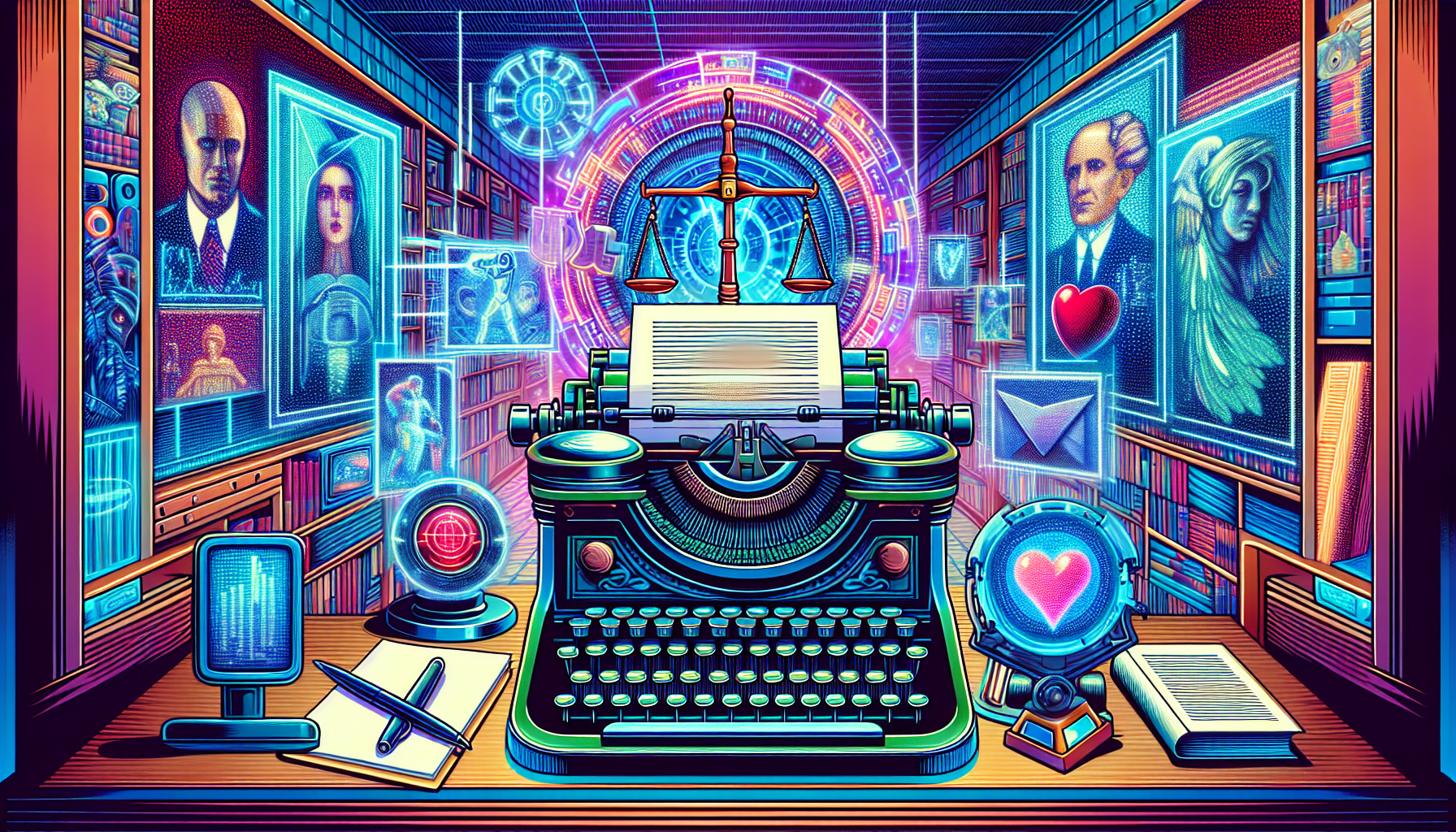
Hollywood’s New Star: When AI Grabs the Screenwriting Chair
Picture this: You’re cozying up on the couch with a bucket of popcorn that could feed a small army, ready to dive into the latest blockbuster. The plot twist? A non-human mastermind is behind the screenplay. Yup, artificial intelligence has not-so-casually entered the writers’ room. But before you go all “take my money!” on this idea, it’s time to sift through the ethical muck surrounding AI-powered screenwriting.
The Great Human-AI Brainstorm: Whose Stories Get Told?
Imagine you’re an aspiring screenwriter who’s just spent several sleepless nights writing the next Oscar-worthy script. Meanwhile, an AI scriptwriter cranks out screenplays faster than you can say “Best Original Screenplay.” As cool as that might sound to the uninitiated, it raises some tricky ethical questions. For one, does this newfound talent pool dilute the distinctiveness of human creativity?
Sure, algorithms can crunch data to predict what audiences might like. But can they really capture the nuances, cultural textures, and soul-stirring originality that make stories unforgettable? Also, who gets the screen credit? An AI cannot exactly saunter up to the stage in a tux and deliver an acceptance speech. Can it?
AI and Intellectual Property: A Legal Tug-of-War
Let’s break down another ethical puzzle: intellectual property rights. Who owns a story written by an AI? The programmer? The end-user nodding approvingly at their laptop? Or maybe even the AI itself, just for kicks?
This grey area sends shivers down many a legal spine. In an era where copyright battles can turn neighbor against neighbor faster than you can hum the Jeopardy theme song, adding AI to the equation is like tossing a lit match into a room full of fireworks. And let’s not even start on potential plagiarism issues. If an AI screenwriter scours the internet for inspiration, where does inspiration end and blatant copying begin?
Ethics of Bias: Unconscious Bots?
If you think that algorithms are the epitome of impartiality, think again. Behind every line of code is a human programmer who brings their own baggage. Thus, bias in AI is as real as your phobia of accidentally double-tapping your ex’s Instagram photo from 2013.
Imagine an AI system pushed into overdrive thanks to the biases inherited from its data. Will it churn out scripts rife with stereotypes? Could it perpetuate harmful tropes rather than breaking new ground? The risk is less like a small bump in the road and more like an iceberg in the Titanic’s path. Yikes!
The Humane Element: Unemployment and The Human Touch
Beyond storytelling lies a pressing issue: job security in Tinseltown. If studios start relying heavily on AI to churn out screenplays, what happens to countless human writers making a living from their craft? Taking away the human touch not only risks cookie-cutter scripts but brings up the valid concern of pushing skilled workers out of the creative fold.
But let’s think bigger: Can an AI truly understand the complexity of human experiences? Yes, it might concoct a plot twist to rival your favorite soap opera’s cliffhangers, but can it feel the triumph of healing? The despair of loss? The giddy euphoria of a first love? We’re getting existential here, but these questions are worth pondering.
And… Scene!
While AI-driven screenwriting offers exciting possibilities—think of it as the shiny new toy in Hollywood’s arsenal—it also unravels numerous ethical conundrums. As audiences, legal teams, and creators unravel the implications, the key will be balancing innovation with responsibility. And for now, we might want to keep a human or two in the writers’ room, just to add that perfect, imperfect human touch.






